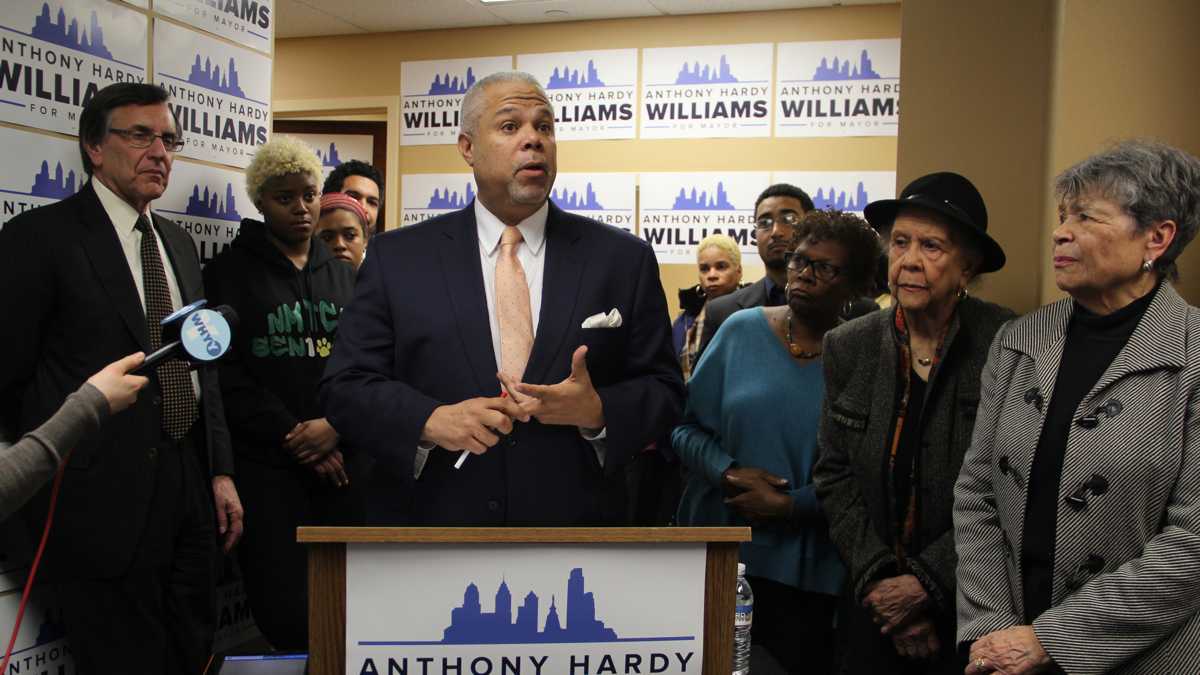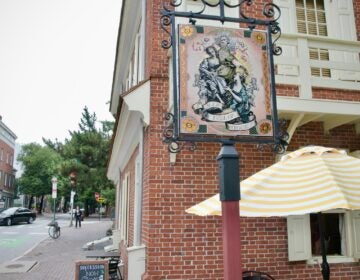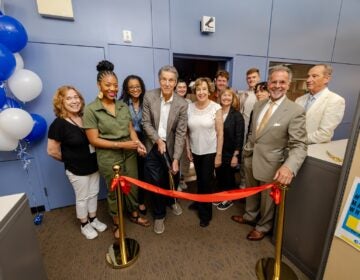PlanPhilly talks millennial gentrification and more with Tony Williams

Tony Williams, shown here talking about education funding, sat down with PlanPhilly for a development chat last week. (Emma Lee/WHYY)
NewsWorks kin PlanPhilly recently sat down with mayoral candidate Tony Williams for a half-hour chat about development-related issues (and more!) and posted full and abbreviated versions of that discussion on Monday.
The highlights? His take on gentrification from the edited version …
The tension between gentrification and those who’ve been here for a while, specifically low- and moderate-income, and the new generation that’s moving here, either empty-nesters and people who have money tends to be a conversation that’s had in neighborhoods that reflects division.
And it depends on who you talk to. If you use the word gentrification in one group it’s like, oh, it’s a bad thing, and in another group it reflects millennials. I think both are kind of insignificant, because first of all millennials are not just Center City professionals; they’re diverse people across Philadelphia.
That’s the first thing.
The second thing: gentrifying a neighborhood, provided you put in certain obvious understandings, it’s a good thing. The fact that an open lot has been that way for a long time and causes problems, the person who’s a senior doesn’t want that. They just are concerned about, are they going to be taxed out of their homes?
… and his response to a question about tax policy in the extended version:
When I was young, South Street was dilapidated, they used to call it Skid Row. The city targeted an area and drove commerce to that section. And the zoning process that the mayor has, the mapping that he’s doing I think is very good. I think that will support the ideas about how we actually map out an economy across the City of Philadelphia.
Then, we’ve got to apply that to tax policy. Or abatement policy for tax credits. Abatements which are significant and people see them as sort of high rises in Philadelphia, which, the truth is, they’re more than high rises. We could take that same concept and take a law firm. Significant-sized law firm planted in a neighborhood in West Philadelphia, Northeast Philadelphia, North Philadelphia, whatever it is: free parking. And you can drive an economy around it, secondary markets. So we need to be smart about how we map out the future economically and driving business there.
Two, we need to support it with tax policies that make sense.
And third, L&I, the experience we need to become business friendly so that those who would even consider it, once we actually market it and brand it, can actually get through the process of paperwork and all that other stuff.
Read more of PlanPhilly’s interview with Williams via this link.
WHYY is your source for fact-based, in-depth journalism and information. As a nonprofit organization, we rely on financial support from readers like you. Please give today.




